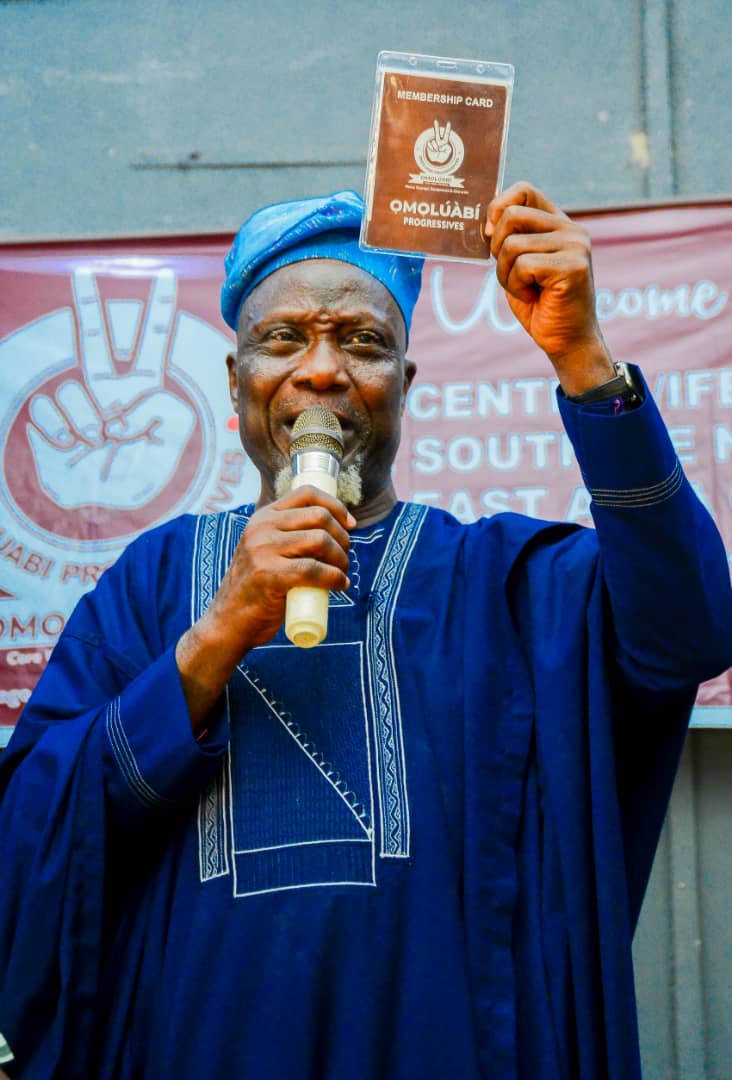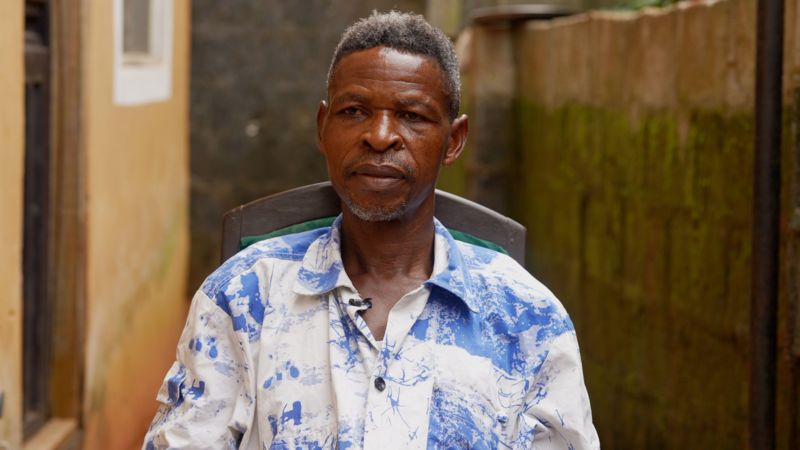Oyetola Avoiding The Paradox Of Plenty


By Olowogboyega Oyebade
Do you know that the Governor of the State of Osun is a rare proactive person? Do you you know that the Security Summit organised by him on mining activities in the State was a huge success? Are you aware that the summit was to galvanise the State against ‘resource-curse’ to avoid the paradox of plenty as far as gold mining in our State is concerned? Do you want to know about ‘resource-curse’? Do you believe that it should not affect gold mining in this State? Come along, please.
Do you know what we call ‘Utopia’… an imagined perfect society for its citizens? Do you know that it focuses on equality in economics, government and justice? Have you read Plato’s ‘Republic’ where he categorised citizens into gold, silver, bronze and iron in terms of their socio-economic classes? Are you aware that the golden citizens are to be trained for 50 years to be the “philosopher-kings”? Do you know that, according to Plato, the wisdom of these rulers will supposedly eliminate poverty and deprivation through fairly distributed resources and promote prosperity and justice? Do you ask why high premium is given to gold standard? Are you aware that a person tried at a time to remodel the people’s psyche about the great value that gold commands? Do you know what he did? Do you know that he wrote a satire to picture gold as worthless and only to be venerated by slaves and worthless individuals? Who was this person? Are you aware that the term utopia was coined from Greek by Sir Thomas More for his 1516 satire titled Utopia, describing a fictional island society in the south Atlantic Ocean? Do you want to know Thomas More? Come along, please.
Sir Thomas More (7 February 1478 – 6 July 1535), was an English lawyer and author. He published Utopia in 1516 to picture the political system of an imaginary, ideal island nation. He opposed the Protestant theology of Martin Luther and opposed England’s separation from the Catholic Church. He refused to acknowledge Henry as Supreme Head of the Church of England and the annulment of his marriage to Catherine of Aragon. After refusing to take the Oath of Supremacy, he was convicted of treason and executed. Of his execution, he was reported to have said: “I die the King’s good servant, but God’s first”. Do you know that the satire of Thomas More raised the bar in the vanity of gold as a measure of value?
Thomas More’s satire called Utopia creates an imaginary island where gold is so abundant that it is used to make chains for slaves. Gold is made worthless that it is used for all table-wares for captives. In fact, gold is used for toilet seats. Indeed, when ambassadors from other countries arrive in the Island, dressed in ostentatious gold jewels and badges, the Utopians mistake them for common menial servants. Hence, the Utopians are paying homage instead to the most modestly dressed of their party. What a down-play of gold? Do we do the same as it now commands threats and opportunities with equal strengths? You care for more? Enjoy this time-out.
On Wednesday, 11 November 2015, President Buhari swore in members of his out-going cabinet. Among them was Dr KayodeFayemi, the present Governor of Ekiti State, who was then in charge of Ministry of Solid Minerals. Part of his agenda was to make sure that the economy was diversified to shift Nigeria away from depending only on crude oil through tapping into the solid mineral exploitation and to tackle the problem of illegal miners in Nigeria. The artisenal miners who have for years been digging for gold in parts of the State of Osun stuck to the trade in a most reckless manner. There is palpable fear that their greed, if not quickly regulated, may put ‘Dutch Disease’ and Paradox of Plenty in our hands. Do you want to know more about these? Come along, please.
The year was 1959. The place was Groningen in the Netherlands. A huge natural gas field was discovered. The Netherlands (Dutch) sought to tap this resource in an attempt to export the gas for profit. However, when the gas began to flow out of the country, so too did its ability to compete against other countries’ exports. With the Netherlands’ focus primarily on the new gas exports, the Dutch currency began to appreciate, which harmed the country’s ability to export other products. With the growing gas market and the shrinking export economy, the Netherlands began to experience a recession. Dutch disease made tradable goods less competitive in world market, leadingto unfavorable balance of trade. Imports became cheaper in all sectors, internal employment suffered and with it the skill infrastructure and manufacturing capabilities of the nation. Rather than following economic diversification, grand public projects that were misguided and mismanaged were the order of the day.
To compensate for the loss of local employment opportunities, government resources were used to artificially create employment as safety nets to calm social tension. The increasing national revenue resulted in higher government spending on health, welfare, military, and public infrastructure and most of them were done with tendencies of corruption. The economy was burdened. There was greater dependence on natural resource revenue which left the economy vulnerable to price changes in the natural resource. These trajectories were witnessed in Venezuela, Angola, the Democratic Republic of the Congo and Nigeria. The governments of these countries resorted to borrow heavily in foreign currency. Real exchange rate increased. Poverty soared. Unemployment rose. Economic crises crept in. Did you ever imagine that Venezuela of the great Chavez would open its borders to food aids from America’s Donald Trump? That is Dutch Disease for you. The words of Venezuelan oil minister and OPEC co-founder Juan Pablo PérezAlfonzo in 1976 interlude: “Ten years from now, twenty years from now, you will see, oil will bring us ruin… It is the devil’s excrement.”
Are you aware that in countries afflicted with Resource Curse, natural resource industries tend to pay far higher salaries than would be available elsewhere in the economy, thus attracting the best talents to do idle jobs and at times making the local employees work against the interest of their countries? Do you know another possible effect of the resource curse is that countries that rely on natural resource exports may tend to neglect education because the people see no immediate need for it? Do you know that the resource-poor economies like Singapore, Taiwan or South Korea, by contrast, spend enormous efforts on education, and this contributed in part to their economic success? Do you know that the over-reliance of Spain during its Empire era on wealth, huge cash inflows from silver, obtained from its resource-rich colonies in South America in the sixteenth century reduced incentives for industrial development, innovation and investment in education in Spain. Do you know that Spain soon lost its economic strength in comparison to other Western countries? That is the normal trajectory. Do you know that natural resources are a source of economic rent which can generate large revenues for those controlling them even in the absence of political stability and wider economic growth? Do you know that their existence is a potential source of conflict between factions fighting for a share of the revenue, which may take the form of armed separatist conflicts in regions where the resources are produced or internal conflict between different government ministries or departments for access to budgetary allocations? Do you know that studies have shown that even when politically stable, countries whose economies are dominated by resource extraction industries tend to be less democratic and more corrupt? Are you aware that a 2019 meta-analysis of 69 studies found “that there is no aggregate relationship between natural resources and conflict? Do you know that ethno-political groups are more likely to resort to rebellion rather than using nonviolent means or becoming terrorists when representing regions rich in mineral-rich areas? Do you know that resource wealth may increase the vulnerability of a mineral area to conflicts by undermining the quality of governance and economic performance? Do you know that conflicts can occur over the control and exploitation of resources and the allocation of their revenues? Do you know that access to resource revenues by belligerents, bandits and terrorists can prolong conflicts? Do you know that a 2016 study finds that “oil production is associated with a higher risk of initiating conflict while countries enjoying large oil reserves are more frequently the target of military actions.”? Do you know that as of 2016, the only six countries whose reported military expenditures exceeded 6 percent of GDP were significant oil producers: Oman, South Sudan, Saudi Arabia, Iraq, Libya and Algeria? Are you aware that the emergence of the Sicilian Mafia was attributed to the resource cursestrongly linked to Sicilian abundance in sulphur? Do you know that a 2018 study in the Economic Journal found that “oil price shocks are seen to promote coups in onshore-intensive oil countries, while preventing them in offshore-intensive oil countries?
According to Michael Ross, do you know that oil wealth strengthens authoritarian regimes, making transitions to democracy less likely and that oil wealth weakens democracies? Do you know that resource curse breeds irresponsible citizenry in countries whose economies are dominated by natural resources as rulers do not need to tax their citizens because they have a guaranteed source of income from natural resources and because the country’s citizens are not being taxed, they have less incentive to be watchful with how government spends its money? Do you know that corrupt members of national governments may collude with resource extraction companies to override their own laws and ignore objections made by indigenous inhabitants? Do you know that one study finds that resource wealth in authoritarian states lower the probability of adopting Freedom of Information (FOI) laws? Are you aware that resource curse has a causal relationship on gender disparity in our country? Do you know that research in Gender inequality links gender inequality in Nigeria to resource wealth, creating problems of “petro-sexual politics”? How many women were able to be win presidential and governorship tickets in the last elections in Nigeria? Do you know that they were edged out by Resource-Curse? Now that we are contemplating to diversify to solid minerals, is it not good enough to avoid resource curse? The words of the US Senate Foreign Relations Committee report entitled “Petroleum and Poverty Paradox” resonate:
“Too often, oil money that should go to a nation’s poor ends up in the pockets of the rich, or it may be squandered on grand palaces and massive showcase projects instead of being invested productively”.
Do you know that the “paradox of plenty”is not new? Do you know that as far back as 1711, a newspaper titled ‘The Spectator’ wrote: “It is generally observed that in countries of the greatest plenty there is the poorest living”? Yes! It follows the same trajectory. It describes countries with an abundance of natural minerals to witness less economic growth, less democracy, and worse development outcomes than countries with fewer natural resources. Do you know that research suggests that the manner in which resource income is spent, system of government, institutional quality, type of resources, and early or late industrialization all have been used to explain successes and failures of countries and communities? As thousands of miners are rushing to the State of Osun, to mine gold, is it not good enough to regulate their activities? Do you know that gold is special and we must not do to it as we did to oil? Come along, please.
Do you know that gold is as old as civilization? Do you know that it is the most-valuable mineral? Do you remember the golden calf smithed by Aron, the brother of Moses in the old testament according to the Holy Bible? Do you remember the account in the New Testament on the gifts of the three magi, gold, frankincense and myrrh? Why gold? Do you remember the Book of Revelation describing the city of New Jerusalem as having streets “made of pure gold, clear as crystal”? Do you know that exploitation of gold dated back to more than 8th century BC? Do you know that many empires had risen and fallen because of gold? Have you read the History of West Africa during the reign of Mansa Musa’s (ruler of the Mali Empire from 1312 to 1337)? Did you read about his hajj to Mecca in 1324, how he passed through Cairo in July 1324, and was reportedly accompanied by a camel train that included thousands of people and nearly a hundred camels where he gave away so much gold that it depressed the price in Egypt for over a decade, causing high inflation?
Do you know that the European exploration of the Americas was fueled in no small part by reports of the gold ornaments displayed in great profusion by Native American peoples, especially in Meso– America, Peru, Ecuador and Colombia? Do you know that the Aztecs regarded gold as the product of the gods, calling it literally “god’s excrement” , and after Moctezuma II the King was killed, most of this gold was shipped to Spain? Have you heard the English fable of the hen that lays the golden hen? Do you wonder while the top prize atthe Olympic Games and many other sports competitions is the gold medal? Are you aware that one main goal of the alchemists was to produce gold from other substances, such as lead which laid the foundation for today’s Chemistry? Do you wonder why rumours of looting of golden treasures followed tragedies such as the Jewish temple treasures in the Vatican, following the temple’s destruction in 70 AD, a gold stash on the Titanic, the Nazi gold train following World War II? Do you wonder why the Sikhs call their temple Golden Temple? Do you wonder why King Solomon was regarded as the richest monarch of Arabian Peninsula? Was it not for his possession of huge quantity of gold? Do you ask why crowns of kings and queens are made of gold? Do you find out why marriage rings are made of gold? Do you know that American soldiers looted gold treasures in the palaces of Sadam Hussein during the Arab Spring?
Gold is associated with intrinsic value. It has become a normal practice for great human achievements to be rewarded with gold in form of gold medals, gold trophies and other decorations. Many awards such as the Nobel Prize are made from gold as well. Other award statues and prizes are depicted in gold. In the rules of interpretation in Law, we have one that is called the golden rule. Do you know that gold is associated with the wisdom of aging and fruition, the fiftieth wedding anniversary being golden anniversary? Do you know that the height of a civilization is referred to as a golden age and a rare opportunity is labelled golden opportunity?
Do you know that the World Gold Council as of the end of 2017 declared that there were 187,200 tonnes of stocks in existence above ground in the world at a value of $8.9 trillion? Do you know that the United States Geological Survey in 2016 revealed that about 5,726,000,000 troy ounces (178,100 t) of gold had been produced since the beginning of civilization, of which 85% remained in use? Do you know that in 2017, the world’s largest gold producer by far was China with 440 tonnes, the second-largest producer, Australia, mined 300 tonnes in the same year, followed by Russia with 255 tonnes, the United States, Canada, and Peru. South Africa, which had dominated world gold production for most of the 20th century, had declined to sixth place? Do you know that other major producers are Ghana, Burkina Faso, Mali, Indonesia and Uzbekistan? Are you aware that the city of Johannesburg in South Africa was founded as a result of the Witwatersrand gold rush which resulted in the discovery of some of the largest natural gold deposits in recorded history? Do you know that the Second Boer War of 1899–1901 between the British Empire and the Afrikaner Boers was at least partly over the rights of miners and possession of the gold wealth in South Africa? Are you aware that today about one-quarter of the world gold output is estimated to originate from artisanal mining, the type that is currently going on in Ilesa area?
Are you aware that according to World Gold Council, China is the world’s largest single consumer of gold in 2013 and toppled India for the first time with Chinese consumption increasing by 32 percent in a year, while that of India only rose by 13 percent and world consumption rose by 21 percent?. Unlike India where gold is mainly used for jewelry, do you know that China uses gold for manufacturing and retail?
Do you know that the chemical elements of gold did not become possible until the understanding of nuclear physics in the 20th century through a Japanese physicist Hantaro Nagaoka, who synthesized gold from mercury in 1924 by neutron bombardment? Do you know that gold can currently be manufactured in a nuclear reactor by irradiation either of platinum or mercury? Do you know why gold is regarded as the most valuable metal? Gold does not react with oxygen at any temperature and, up to 100 °C. It is resistant to attack from ozone. Gold does not react with sulfur directly. Gold readily dissolves in mercury at room temperature to form an amalgam, and forms alloys with many other metals at higher temperatures. These alloys can be produced to modify the hardness and other metallurgical properties, to control melting point or to create exotic colors. Gold is unaffected by most acids. Gold is not affected by most bases.
Do you know that it is still being used as a store of value? Are you aware that Switzerland was the last country to tie its currency to gold, backed 40% of its value until the Swiss joined the International Monetary Fund in 1999? Do you know that Central Banks continue to keep a portion of their liquid reserves as gold in some form, and metals exchanges such as the London Bullion Market Association still clear transactions denominated in gold, including future delivery contracts? Do you know that the gold proportion (fineness) of alloys is measured by karat? Do you know that pure gold (commercially termed fine gold) is designated as 24 karat, abbreviated 24k? Do you know that alloys with lower karat rating, typically 22k, 18k, 14k or 10k, contain higher percentages of copper or other base metals or silver or palladium in the alloy? Do you know that although the prices of some platinum group metals can be much higher, gold has long been considered the most desirable of precious metals, and its value has been used as the standard for many currencies? Are you aware that gold has been used as a symbol for purity, value, and royalty? Do you know that the demand for gold pushed turnover of gold to all time high in 2018 as reported by the World Gold Council?
Do you know that gold has many other uses apart from being a store of value and used for jewelries? Do you know that the demand for gold is rising in electronics industries? Do you know that about 10% of the world consumption of new gold produced goes to industry, but by far the most important industrial use for new gold is in fabrication of corrosion-free electrical connectors in computers, telephone hand-sets and other electrical devices? Do you know that according to the World Gold Council, a typical cell phone may contain 50 mg of gold, worth about 50 cents? With over one billion cell phones produced each year, do you know that a gold value of 50 cents in each phone adds to $500 million in gold from just this application? Do you know that gold is used in the connectors of the more expensive electronics cables, such as audio, video and USB cables because of its resistance to corrosion, electrical conductivity, ductility and lack of toxicity?
Do you know that gold compounds have long been used for medicinal purposes for the treatment of arthritis and cancer, nervous disorders, depression, epilepsy, migraine, and glandular problems such as amenorrhea, impotence, alcoholism tuberculosis and some parasites? Do you know that gold alloys are used in restorative dentistry, especially in tooth restorations? Do you know that the isotope gold is used in nuclear medicine for some cancer treatments and for treating other diseases? Do you know that in Cuisine, gold leaf and flakes are used as decorative ingredients? Do you know that in photography, gold toners are used to shift the color of silver bromide black-and-white prints towards brown or blue tones, or to increase their stability and beauty? Do you know that it is used for the protective coatings on many artificial satellites, in infrared protective face-plates in thermal-protection suits and astronauts’ helmets, and in electronic warfare planes such as the EA-6B Prowler? Do you know that gold is used as the reflective layer on some high-end CDs? Do you know that automobiles may use gold for heat shielding? Do you know that gold is used in some aircraft cockpit windows for de-icing or anti-icing by passing electricity through it, the heat produced by the resistance of the gold is enough to prevent ice from forming? .
Do you know that gold mining can be a terrible source of pains? Do you know that it can cause hazardous pollution? Do you know that Sodium Cyanide is used to dissolve low-grade gold ore and it is a highly poisonous chemical, which can kill living creatures when exposed in minute quantities? Do you know that gold ore dumps are the source of many heavy elements such as lead, zinc copper mercury which are not environment-friendly and a toxic danger to surface and underground water? Do you know that these wastes are highly hazardous wastes second only to nuclear waste dumps? Do you know that some small scale miners use mercury to recover gold? Are you aware that minute quantities of mercury compounds can reach water bodies, causing heavy metal contamination? Do you know that if mercury enters into the human food chain, it causes incurable brain function damage and severe retardation? Do you know that gold extraction is also a highly energy-intensive venture, requiring nearly 25 kWh of electricity per gram of gold produced? Are you aware that gold soluble compounds (gold salts) such as gold chloride are toxic to the liver and kidneys?
Do you know that gold mining can significantly alter the natural environment, the entire forests, rivers and bio-diversity, particularly in aquatic systems, people and wildlife? Do you know that in any environment where intensive gold-mining is to begin, many non-governmental organizations have to move in to encourage more environmentally friendly and sustainable business practices in the mining industry? Do you know that we have to create ‘clean’ or ‘ethical’ gold in the State of Osun? Do you know that we have to factor in the noise pollution, too?
The State of Osun boasts of gold deposits in some parts. In Ijesha land, over 2,000 pits have been dug by miners in the course of their search for gold. Since the miners only need to pay a token to obtain a daily ticket that allows them to dig endless pits in search for gold, they assume they are not running at a loss by currently selling an ounce of it to middlemen between N5, 000 and N6, 000, a mere fraction of the international selling price of over $1,000. Do you know that the artisanal miners claim to be completely unaware of the existing Nigerian Mineral and Mining Act 2007? Do you know that Section 94 stipulates that the purchase of minerals without an officially issued license is prohibited? Do you know that the middlemen are also unperturbed about the illegality of their activities? Do you know that since the miners claim that the tickets that allow them to dig endless pits are purchased from official quarters allegedly attached to the Federal Ministry of Mines, and having continued their activities unmolested for years, the dwellers in the host communities have hitherto deemed it a legitimate venture for any Nigeria or immigrants? Do you know that there are illegal mining activities going on in the fields? Do you know that the host communities where these miners carry out their activities have much to lose as the pits and channels being dug actually expose them to various risks apart from kidnapping, rape and sundry harassments?
Hurray! The Federal Government has announced that it will partner with Osun and Kebbi States on artisanal mining of gold. This is a clarion call for all of us to take interest in that corridor to weigh the threats and opportunities that are in-built in its mechanism. There is the need to step up security in that corridor to prevent the fleeing terror groups from Zamfara from gaining entry, talk less of making the place their haven. It can be a hole in the head. It is against this background that we salute the vision of Mr Adegboyega Oyetola to organise a security awareness summit last week Thursday. The success that attended the summit is a sign-post signalling the motto of The Boy Scout saying: “Be prepared.” We must avoid resource curse! The road to “ paradox of plenty” is misery-coated! Happy Easter, Comrades!










